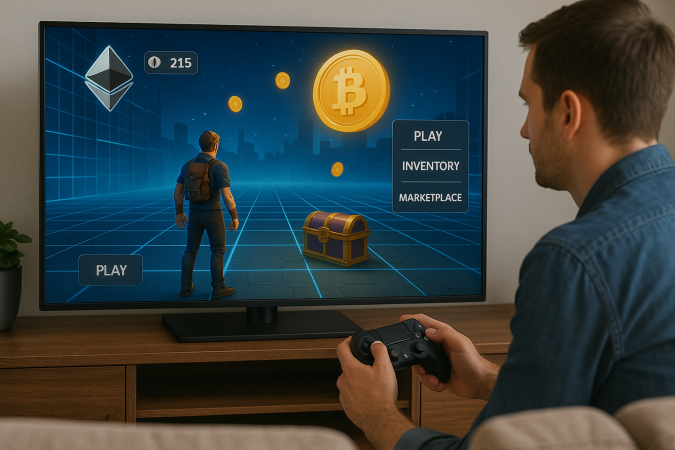The gaming industry is exploring new ground as cryptocurrency enters the picture. Developers are experimenting with how we can use blockchain to allow players greater control, true ownership of items, and new ways to earn value within games. Some think this may change the way games are made and played. These kinds of ideas do provide something different, but raise some significant questions.
Crypto is Already Used in the Gaming Industry
Crypto is no longer an experiment in gaming. We can take an example of Decentraland. It’s built on Ethereum, and it gives the players full ownership of land, items, and content through NFTs. You can purchase a virtual property, build on it, sell it later, or even rent it out.
Crypto has also made its way into online gambling. Namely, in this guide, Robbie Purves talks about no-KYC casinos as crypto-based platforms that let players deposit and withdraw funds using digital currencies. These casinos skip the usual ID checks and account setups. The focus is on fast deposits, fast withdrawals, and keeping personal data out of the system.
Then there’s Axie Infinity, which is a game that allows players to earn tokens by battling and breeding digital creatures. For many players, especially in countries with limited work options, this even became a source of extra income.
Why Crypto Actually Works in Games
One of the biggest benefits that crypto offers in gaming is ownership. In older games, no matter how much time you put into the game, your items could often vanish if the game shut down. With blockchain, that has changed. Items become NFTs, stored in wallets, tradable, and still yours even if the game disappears.
There’s also value in earning. Many of the crypto games have moved to a model of rewarding players with tokens for competing, exploring, or completing challenges. These tokens can be used in-game or even converted to real money.
Security is another benefit. Because blockchains document everything and are distributed among networks, it’s difficult to fake things or cheat the system.

Pexels.com
The Problems Developers Still Need to Solve
Crypto games aren’t perfect. One issue is price swings. A token could have a $10 value today and $1 value tomorrow. That makes it hard for players to trust what their time is worth. People who want to relax don’t want to worry about market crashes.
Technology restricts things as well. Blockchains can get crowded. When too many people use a network, things slow down, or become expensive. Developers are working on fixes like layer-2 tools, but they’re not fully there yet.
Yes, Crypto Has a Future in Gaming
More studios are now creating titles that combine polished gameplay with tokens. These aren’t experiments. They’re full games, with real budgets and ascending player bases.
Rules will also continue to develop. Clearer laws could help big publishers join the space without fear of legal issues. At the same time, cleaner blockchain systems will reduce the concerns about energy usage, helping crypto become more acceptable.
As tools improve, the crypto layer will become easier to use or even invisible. Players won’t have to know how wallets work at all. They’ll just log in, play, and get the benefits automatically.

